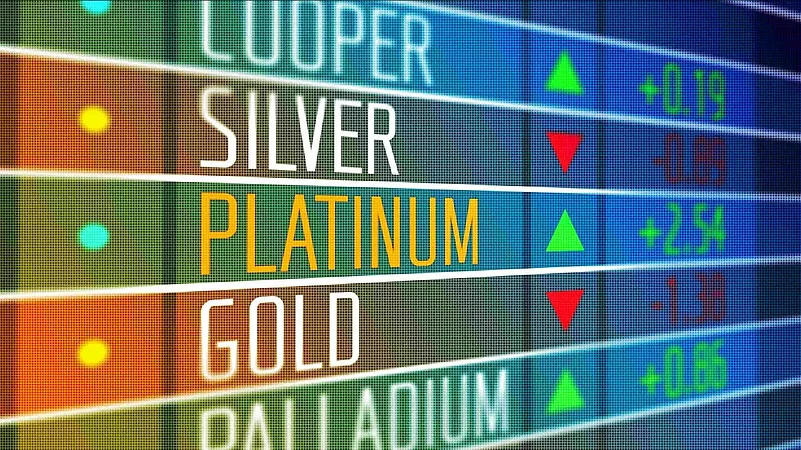With the Russia-Ukraine war hitting oil supplies and giving rise to uncertainty, prices of commodities such as oil and gold, which are considered a safe haven in uncertain times, have risen.
Investing in commodities is one of the best ways to diversify your portfolio as the prices of commodities are negatively correlated with other asset classes. For example, the equity and gold asset classes typically move in opposite directions.
In India, the commodity trading markets are frequented by mainly three types of buyers: businesses that deal with these commodities, institutional investors, and retail participants.
However, investing in commodities carries its own risks.
Nature Is Speculative
"Many traders in the commodity market in India trade through futures contracts. Businesses use futures to hedge against the prices of commodities that they handle to minimise the risk of financial loss. The commodity market in India also draws participation from speculators, "says Narinder Wadhwa, national president of the Commodity Participants Association of India (CPAI).
The price of a commodity is derived from the universal economic principle of demand and supply. But it’s very difficult to predict that. For example, nobody knew that neon gas prices would skyrocket after the Russia-Ukraine war as two companies from Ukraine that control a large portion of global supplies stopped production.
"Just like any other free-floating market, commodities markets can be used for hedging and speculation. In India, MCX is the biggest exchange which provides a series of instruments for speculation and hedging, "says Megh Mody, research analyst at Prabhudas Lilladher, a financial services company.
Businesses that deal with commodities intend to hedge against price fluctuations.
Volatility is inherent.
Commodity trading can sometimes be very volatile, and hence you should monitor your position every time very closely, especially during situations like a pandemic or war.
"Commodities market is majorly impacted by demand supply dymanics leading to high volatility incase of any imbalance. Also any imbalance cannot be dealt overnight leading to persistent volatility over extended time. Take a look at all the commodities hitting new highs as there is a sudden rise in demand post covid for growth while supply is unable to keep pace. Also the recent Russia-Ukraine conflict lead to some commodities inching towards life time highs last seen during global financial crisis," said Vijay Kuppa, Co-founder, Orowealth, a wealth and investment management fintech startup.
For instance, the crude oil contract is the most volatile commodity contract. Two years ago, when there were lockdowns due to COVID-19, crude oil contract prices crashed, going down to a negative Rs 2,884 per barrel. But when the Russia-Ukraine crisis emerged, the crude oil price saw a sudden spike of 20 per cent within two weeks.
"It should be noted that the commodity markets are volatile, and traders should have a high-risk appetite as shifts in commodity prices can lead to huge profits or losses. In my view, one should allocate only a portion of their entire portfolio to commodity trading according to their risk tolerance, "says Shaily Shah, co-founder, Elevo (powered by Tarrakki), a financial investment platform.

Trade Liquidity and Timing
The commodity market is open from 9 a.m. to 11.30 p.m. The timing is intentionally long so that commodity prices can be matched with international prices prevailing in the European and US markets.
Since the commodity market is open for a longer duration, there are times when there are fewer market participants. This situation gives rise to the risk of the commodity contract expiring before the seller finds a buyer. Once the contract expires, it is of no value.
Exchanges have solved this problem by deploying liquidity makers, but risks remain in many situations.













